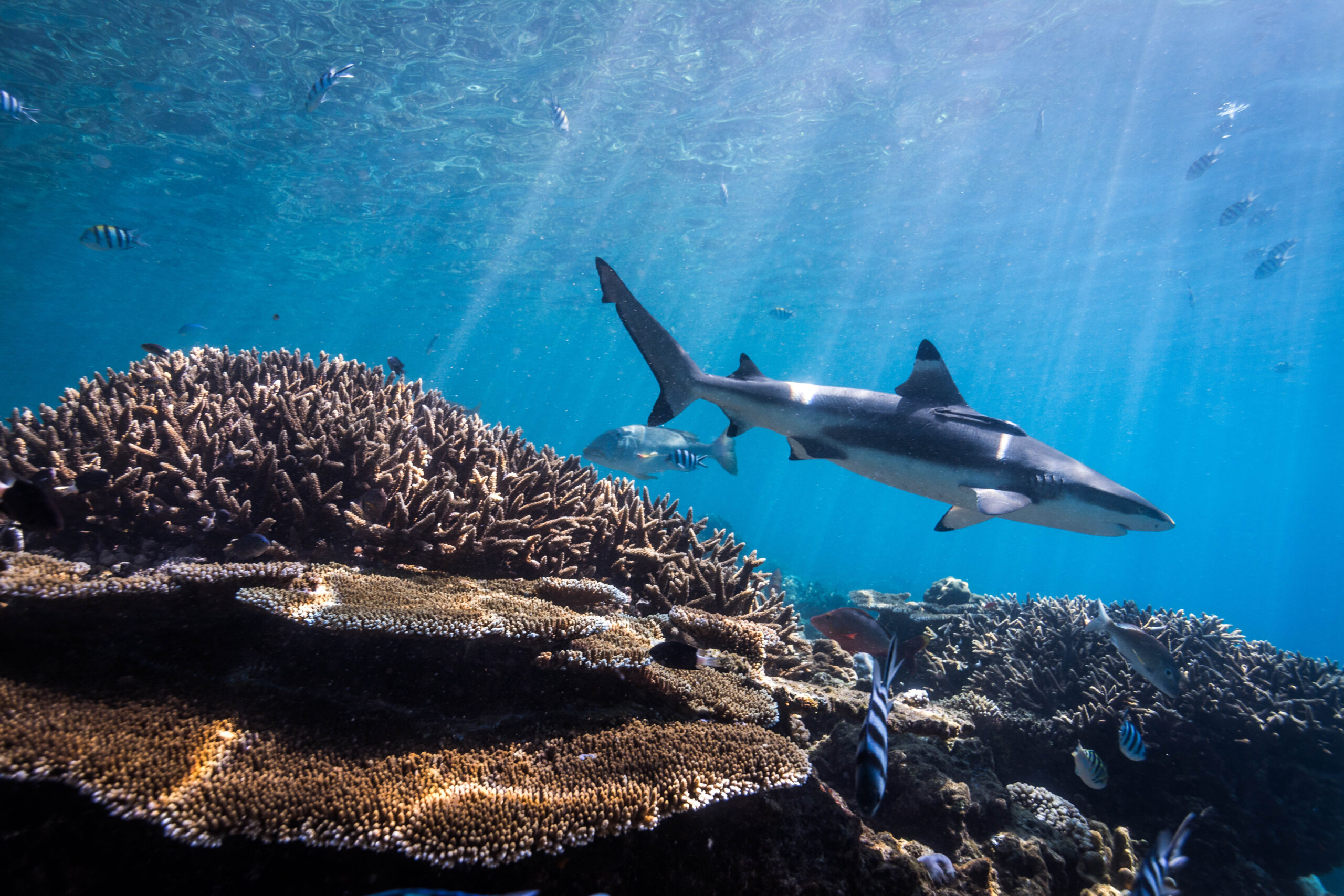Levels of atmospheric CO2 continues to rise and threaten coral reefs globally. This is because atmospheric CO2 reacts with water in the ocean to produce carbonic acid which in turn forms bicarbonate ions that react with carbonate ions to produce more bicarbonate ions (reducing availability of carbonate in the ocean). Declines in available carbonate can reduce the calcification of coral reefs and marine organisms. The authors describe the consequences of increased atmospheric CO2 and subsequent warming, as predicted. Even under the best case scenario, ocean acidification will likely cause contractions of carbonate coral reefs if CO2 levels exceed 500 ppm. Although these global threats require changes at a global scale, local factors such as poor water quality, coastal pollution, and overexploitation of certain organisms, should be reduced to lesson the overall stressors to coral reef communities. The authors also suggest that healthy grazing populations should help to improve a coral reefs ability to bounce back from future disturbances; thus, healthy herbivore populations should be managed for explicitly.
Author: Hoegh-Guldberg, O., P.J. Mumby, A.J. Hooten, R.S. Steneck, P. Greenfield, E. Gomez, C.D. Harvell, P.F. Sale, A.J. Edwards, K. Caldeira, N. Knowlton, C.M. Eakin, R. Iglesias-Prieto, N. Muthiga, R.H. Bradbury, A. Dubi, and M.E. Hatziolos
Year: 2007
View Abstract
Email for the full article: resilience@tnc.org
Science 318(5857): 1737-1742. doi: 10.1126/science.1152509


